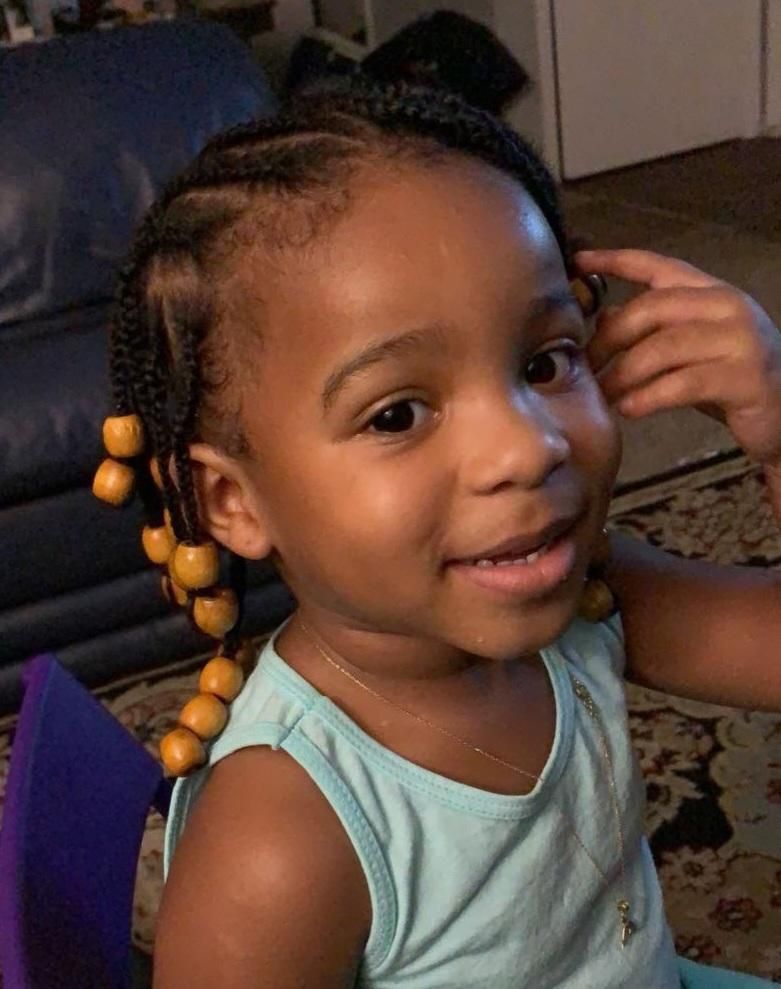
by Lee Pierre
Studies show that teasing and unwanted hair touching are just some of the negative experiences Black girls go through because of their hair. As a result, some Black girls have a negative experience due to hair dissatisfaction. Neuroscience news reported that girls as young as 10 years old have experienced negativity regarding their hair.
Research from the Arizona State University Department of Psychology revealed how common it is for Black girls to feel negative about their hair. “Negative experiences related to hair are normative for young Black girls. Even girls as young as 10 years old reported negative experiences because of their hair,” said Marisol Perez, associate professor of psychology at ASU and senior author of the paper.
Although there are few existing literatures documenting hair-related experiences among Black youth, the study was motivated by recent events where Black youth have been suspended from school, threatened with punishment, or not permitted to participate in extracurricular activities because of their hair. Black students are three to six times more likely to be suspended or expelled from school as those in charge continue to criminalize Black hairstyles under the façade of preparing the students for the real world.
The research team worked with community organizations to recruit participants. In total, the study included 105 girls aged 10–15 years old who identified as Black or African American. The girls answered a series of open-ended questions about satisfaction with their natural hair, social comparisons of hair, bullying or teasing because of their hair, and pressure to wear their hair a certain way.

Most Black girls grow up with an idea of the difference between “good hair” and “bad hair.” It is usually one that identifies good hair as being “flowing, soft, straight and easy to manage,” whereas “bad hair” is thought to be “short, kinky, and hard to comb through.” These responses are evidence of how the media has portrayed Black models and celebrities – usually with chemically straightened or wavy hair. The second influence is the negative feedback about natural Black hair at school.
In the study, 14-54% of the girls reported having been teased because of their hair since preschool or kindergarten. Verbal teasing was overshadowed by touching another person’s hair without permission. In the 10-year-old group, 70% reported having had their hair touched without permission; 50%% of 11-year-olds, 81% of 12-year-olds; 65% of 13-year-olds, and 70% of 14-year-olds.
Londyn L., 13, a middle-school student-athletic, who likes her Black hair says, “My hair is very unique, one of a kind, and textured!” She has never been teased about her naturally brown curly hair. Though there is one thing that she dislikes about her hair. “The shrinkage after I wash it makes my hair look short and I like my hair to look long.”
Londyn can’t recall ever having a bad incident regarding her hair. “Once a girl touched my hair without asking but it didn’t bother me because she was my friend.’
Xaielle C., 4, is just learning about her natural hair with help from her mother. She thinks that she looks pretty and loves her hair. Fortunately, her mother reinforces the positivity of natural hair.
Quiana, the mother of Xaielle, sets a good example for her daughter by wearing her own hair naturally. She states that her natural hair makes her feel like her true self. She has been subjected to negative comments about her hair however it has not deterred her from keeping it natural.
“I’ve been told that my hair looks like a wig or a lion’s mane. I can manipulate my hair into many styles and then I can revert back to my curls, so, I enjoy my hair.”
She gets her daughter to appreciate her natural hair by telling her that her hair is very important and that taking care of it means that she is taking care of herself. “Also, I keep my daughter’s hair natural because she has a lot to embrace behind it.”
The research team also asked the girls what they do when they have a negative experience because of their hair. The answers included thinking positive thoughts, such as how they love themselves and their natural hair and relying on their family for support.
“Parents can teach their children to love themselves for who they are and encourage them to wear their hair out naturally or in braids,” said Mel Holman, an ASU graduate student, and a co-author of the paper.
“Parents can tell their kids it is not OK when other people want to touch your hair without your permission, it is not OK when people say things about your hair that make you uncomfortable. Parents can tell their kids it is OK to say, ‘It makes me uncomfortable.’”
Though the girls demonstrated resilience with their answers about thinking positive thoughts after negative hair-related experiences, Perez said that is not enough.
“These girls should not have to be “resilient.” We all need to do a better job celebrating natural hair—in the media, in school settings, and in the beauty industry, which financially benefits girls and women thinking they need to alter their hair.”
I am not my hair/I am not this skin/I am the soul that lives within. (Indie.Arie)




